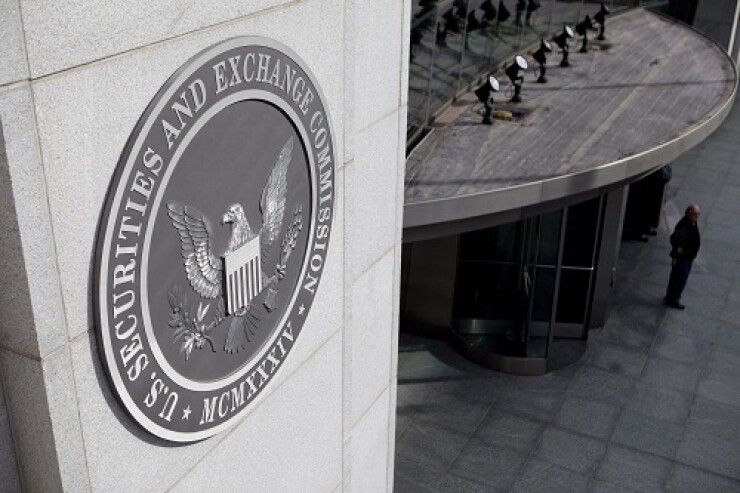U.S. Supreme Court justices seemed likely to reinforce the SEC powers, hearing the case Monday of an investment banker accused of duping investors about a startup company’s financial condition.
The banker, Francis Lorenzo, says the SEC didn’t have enough proof to hold him liable for taking part in a scheme to defraud investors.
But conservative Justice Samuel Alito suggested during arguments in Washington that Lorenzo’s conduct fell “squarely within” the broad language of the federal securities laws. A potential swing justice, Stephen Breyer, said Lorenzo was a “big-deal participant” in the effort to deceive investors.
Lorenzo, who worked at Charles Vista, is accused of sending two emails misrepresenting the financial condition of a client, Waste2Energy. The company was seeking to develop a way to generate electricity from solid waste, but the technology never materialized. An in-house judge at the SEC concluded the emails were “staggering” in their falsity.
A ruling favoring the SEC would mark a turnaround from a trend of Supreme Court rulings against the agency. It could also bolster the rights of private investors, giving them more power to press lawsuits claiming deception.
Lorenzo’s lawyer, Robert Heim, said the SEC is trying to “sidestep” a 2011 Supreme Court ruling that limited who can be held legally responsible for making false statements about securities. Heim got support from Chief Justice John Roberts, who said the 2011 ruling rejected an argument similar to the one being pressed by the SEC in the Lorenzo case.

Lorenzo says he wasn’t the one who actually made false statements because the emails were drafted by his boss. But a federal appeals court said the SEC didn’t have to show that Lorenzo himself made the false statements because the commission was invoking a provision in securities law that sets penalties for a fraudulent “scheme.”
That ruling came over the dissent of Brett Kavanaugh, then a judge on the appeals court and now the newest Supreme Court justice. Kavanaugh isn’t taking part in the case at the Supreme Court, so only eight justices are participating. A 4-4 split would leave intact the ruling against Lorenzo.
Justice Ruth Bader Ginsburg said Lorenzo did more than simply “cut and paste” words written by his boss. The emails included Lorenzo’s title, vice president of investment banking, and said the recipients could call him with questions.
The SEC judge fined Lorenzo $15,000 and barred him from the securities industry for life. As part of its ruling, the appeals court told the SEC to reconsider those penalties. The appeals court threw out separate claims that specifically concern false statements.
Justice Elena Kagan said it seemed clear that Lorenzo’s emails were covered by a longstanding SEC rule known as 10b-5. She pointed to a section of the rule that makes it illegal to “engage in any act, practice, or course of business which operates or would operate as a fraud or deceit upon any person.”
“I guess I just don’t get why the act that he did engage in is not an act that operates as a fraud,” Kagan said.
The case, which the court will decide by June, is Lorenzo v. Securities and Exchange Commission, 17-1077.





